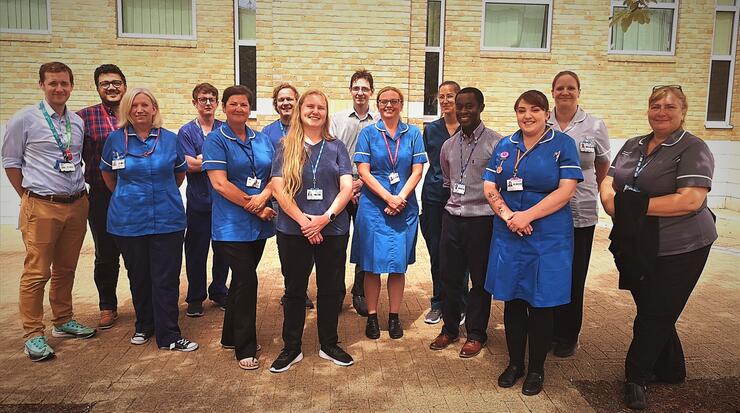Many people are waiting too long for a diagnosis of Inflammatory Bowel Disease (IBD). This is distressing for those who are waiting, with often painful and debilitating symptoms and no effective treatment. It’s also costly for the NHS as delayed diagnosis results in higher likelihood of surgery, more expensive treatments and a poorer prognosis. It can be difficult for GPs to identify potential IBD as the symptoms overlap with other conditions, such as irritable bowel syndrome, and can be atypical, especially in children. Clear pathways and protocols, including the use of faecal biomarkers, can speed up diagnosis and lead to better patient outcomes.
Case study: Direct to Endoscopy pathway, University Hospital Southampton
Case study: Direct to Endoscopy pathway, University Hospital Southampton
Who's doing it well?
University Hospital Southampton Foundation Trust have introduced a novel pathway whereby GP referrals with suspected IBD are triaged by dedicated consultants directly to IBD physician-delivered endoscopy.
The idea
University Hospital Southampton Foundation Trust introduced a novel pathway whereby GP referrals with suspected IBD were triaged by dedicated consultants directly to IBD physician-delivered endoscopy. Faecal Calprotectin (FCP) results were included in the referral if the test had been requested by the GP, and those patients who had not been offered an FCP test were invited to submit a stool sample whilst waiting for their endoscopy. However, if the referral was already strongly suggestive of IBD, they did not wait for the FCP result, to avoid any delays in diagnosis.
The aim of this novel pathway was to reduce referral to treatment time (RTT) and increase the diagnostic yield of IBD. All suitable patients were sent an explanatory invitation letter and contacted by telephone prior to the appointment with an opportunity to opt-out.
On the day of their endoscopy, each patient underwent a short clinical assessment before endoscopic evaluation. The endoscopy was performed by four dedicated IBD consultant physicians. If the patient was diagnosed with IBD, treatment was initiated as appropriate and a specialist IBD nurse reviewed the patients post-procedure to provide relevant support and information.
The outcomes of this pathway were compared to the outcomes of a retrospective cohort that was managed on the traditional pathway with an IBD outpatient appointment prior to booking an endoscopy at a later date.
Results
This innovative pathway resulted in the following improvements:
- Referral to treatment time was reduced by 86% (177 [GM1] days to 24 days).
- 100% of initial traditional care outpatient appointments saved
- The diagnostic yield of IBD (62.0%) increased by 26.4% compared to the traditional care model.
- Decision making and clear management plans put in place at time of IBD endoscopy allowed a significant proportion of follow up patients to be appropriately managed in the IBD nurse led clinics, freeing capacity in consultant clinics.
- Increased training opportunity for IBD-focused gastroenterology training for GI trainees and IBD nurses.
- Patient feedback (via QR code sent or text message once recovered from endoscopy at home) was overwhelmingly positive with almost 100% rating the service as very good or good
Consideration should be given to adopting this innovative model in other suitable NHS trusts.
Consultants very informative and reassuring, nurses very friendly. Brilliant service, very quick process from booking to procedure. Kept informed all the way.

The IBD team at Southampton University Hospital has worked on innovative ways to avoid delay in diagnosis/assessment/treatment of IBD patients. The creation of IBD consultant-led endoscopy lists, which combine a short IBD consultation with an endoscopic procedure has made many interim IBD outpatient appointments redundant. This was first piloted in patients contacting the IBD flare line, where IBD nurses triage suitable patients direct to IBD consultant-led endoscopy for diagnosis and treatment. This model has now been expanded to patients with suspected IBD referred by Primary Care. Both pathways provide rapid access to specialist IBD care, utilising already available information (flare calls/referral letters) for rapid decision making leading to accurate IBD assessment/diagnosis, high rates of starting/changing treatment and a shift to IBD nurse-led follow up with high patient satisfaction.